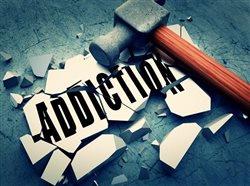
The road to recovery: What you need to know about addiction
(BPT) – Drug and alcohol addiction can destroy careers, tear apart families and ruin lives. With 43,982 total drug-induced deaths each year, addiction continues to be a problem in the United States.
‘Experiencing or watching a loved one battle an addiction is heartbreaking,’ says JJ Bush, Executive Director of Behavior Rehabilitation Services. ‘But there is always hope. Years of research in the field has provided insight into the most effective treatment options. The treatments for addiction recovery are now more effective than ever.’
If you or someone in your life is struggling with addiction, here are some facts you need to know:
Prescription drug addiction is no different than illicit drug addiction.
When you think of drug addiction, prescription drugs are probably not the first substance that comes to mind. This is because many believe getting high on legal drugs holds a lesser stigma than using illegal street drugs, but prescription drugs can be just as dangerous. For example, painkillers and anti-anxiety medication can be safe and effective when used as prescribed, but they are no safer than illicit drugs. Many addiction recovery centers offer programs that specialize in prescription drug addiction as people who abuse these drugs often require treatment.
Anyone can recover from addiction, just like anyone can become addicted.
An addicted person might believe he or she can get off drugs without help and achieve a permanent drug free status, but the CDC cites these as common myths. ‘If patterns of addiction occur for many years, it’s not easy to break the habitual cycle,’ says Bush. ‘Breaking an addiction is an extremely difficult process. Everyone who faces this challenge needs to know it is possible to get help and recover. But prying the grip of alcohol and drugs away from a life requires inpatient treatment.’
Addiction can occur anywhere, in any demographic.
Addiction affects people everywhere without discrimination. Race, ethnicity and gender don’t have any say when it comes to who becomes addicted to drugs or alcohol. Addiction groups, meetings and recovery centers host people from various walks of life, some who may have nothing in common but their addiction.
It’s common to be addicted to more than one substance.
While you might assume every addicted person has a favorite drug and sticks to it, cases of polysubstance abuse – when a person uses multiple classes of substances – are not uncommon. Some examples of this include ‘speedballing,’ a known practice which combines the effects of heroin and cocaine and the mixing of alcohol with stimulants. Many addicts in recovery rationalize using another substance with the thought that it isn’t their ‘drug of choice,’ leading them to fall back into addiction process. Cases like this are often more difficult to treat, but a professional rehabilitation program can offer effective recovery results.
Untreated addiction can lead to death.
In 2013, drug overdose was the leading cause of injury death in the United States, CDC data reports. When addiction to drugs or alcohol becomes a pervasive problem – affecting relationships, employment, physical and emotional health – the addicted person needs to get help before it’s too late. Assistance from a professional inpatient treatment program becomes the solution to gaining lasting recovery.
If you or anyone in your life is struggling with addiction, take the first step towards recovery. For more information, visit behavioralrehabilitationservices.com or call (866) 413-3785.


